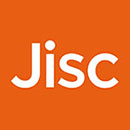Building the Boundaries of Lex Cryptographia
Abstract
Lex Cryptographia, emerging within the realm of blockchain technology, presents the possibility of empowering individuals through the promotion of individual freedom and emancipation. The primary purpose of this research lies in conducting a comprehensive analysis of the components that constitute the Lex Cryptographia to delineate it and thus achieve a more precise understanding of its effects and scope. The method of analysis-synthesis was employed as an approach to dissect its constituent elements and subsequently synthesize them with a view to their definition and demarcation. The results obtained reveal that Lex Cryptographia comprises essential components, namely, code, smart contracts, blockchain, and cryptography. Furthermore, it is acknowledged that regulating this structure is a significant challenge that requires striking a balance between technological power and the values of individual freedoms, democracy, and freedom of expression. The urgent need for an updated legal approach emerges as the path to promote economic growth, strengthen democratic institutions, and safeguard individual freedoms while mitigating potential risks.
Downloads
References
Alvarado Lemus, J. (2021). Lex Mercatoria. Corpolegal. https://corpolegal.com.gt/2021/02/08/lex-mercatoria/.
Arias Torres, J. A., García-Arango, D. A., Echeverri Gutiérrez, C. A., Acosta Agudelo, L. C. y Echeverri Gutiérrez, M. S. (2023). Blockchain aplicada en la innovación de proceso para la integración de servicios de tecnología financiera. Revista Virtual Universidad Católica Del Norte, (69), 135-156. https://doi.org/10.35575/rvucn.n69a6.
Barroilhet Díez, A. (2019). Criptomonedas, economía y derecho. Revista Chilena de derecho y tecnología, 8(1), 29-67. http://dx.doi.org/10.5354/0719-2584.2019.51584.
Becker, K. (2022). Blockchain Matters—Lex Cryptographia and the Displacement of Legal Symbolics and Imaginaries. Law Critique, 33, 113-130. https://doi.org/10.1007/s10978-021-09317-8.
Calderón Marenco, E., Torres Buelvas, J. E., González Rivera, T. V. y Ibarra Rosero, W. D. (2023). Consent in clickwrap agreements: Specifications, limitations and proposals concerning the electronic contracting system. Jado: boletín de la Academia Vasca de Derecho, 18(31) 79-119. https://dialnet.unirioja.es/servlet/articulo?codigo=9114834.
Cardoso, O. V. (2022). Cryptography and Law: The Case of Brazil. Digital Law Journal, 3, 8-19. https://doi.org/10.38044/2686-9136-2022-3-3-8-19.
Celis Gutiérrez, E. (2022). Derechos fundamentales y tecnología blockchain (Tesis de maestría). Repositorio institucional abierto, Universidad de León.
http://hdl.handle.net/10612/14816.
Cristóbal Carle, G. (2019) Regulación legal del comercio exterior: Visión retrospectiva del recurso normativo a la “Nueva Lex Mercatoria Internacional”. Vlex Internacional, (44), https://international.vlex.com/vid/754206593.
Diago Diago, M. P. (2021). Ciberactivismo, «Lex» informática, «blockchain» y oráculos: desafíos en la era digital. En Castelló Pastor, J. J., Desafíos jurídicos ante la integración digital: aspectos europeos e internacionales (pp. 443-465). https://www.millenniumdipr.com/archivos/1624954554.pdf.
Elizondo Araya, A. (2021). Derecho Informático y Protección al consumidor (Tesis de grado). Repositorio institucional Sapiensa, Universidad Hispanoamericana. http://13.87.204.143/xmlui/handle/123456789/7056.
Elkin-Koren, N. y Chagal-Feferkorn, K. A. (2021). Lex ai: revisiting private ordering by design. Berkeley Technology Law Journal, 36(3), 915-962. https://btlj.org/wp-content/uploads/2023/01/0003-36-3-ElkinKoren_Web.pdf
Garrido Gómez, M. (2018). El Soft Law como fuente del Derecho Extranacional: Lex Mercatoria. Dykinson.
Guido, G., Florian, I., Zoran, M., Regis, R., Giovanni, S. y Xiwei, X. (2018). On legal contracts, imperative and declarative smart contracts, and blockchain systems. Artif Intell Law, 26, 377-409. https://doi.org/10.1007/s10506-018-9223-3.
Jacobs, B. L. (2019). A cyber-skeptic's concerns about the state of lex cryptographia: response to marcia weldon's beyond bitcoin: leveraging blockchain to benefit business and society. Transactions: The Tennessee Journal of Business Law, 20(2), 911-926. https://ir.law.utk.edu/utklaw_facpubs/67.
Kaminski, M. E. (2021). Technological “Disruption” of the Law’s Imagined Scene: Some Lessons from Lex Informatica. Berkeley Technology Law Journal, 36(3), 883-914. https://btlj.org/wp-content/uploads/2023/01/0002-36-3-Kaminski_Web.pdf
Kubiak Cyrul, A. (2021). Challenges of smart contracts in contract law – do algorithmic tools undermine human autonomy? En, Miranda Gonçalves, R. y Partyk, A. (Coords.), Artificial intelligence and human rights (pp. 327-339). Dykinson.
Lennart, A. (2021). Smart Contracts on the Blockchain – A Bibliometric Analysis and Review. Telematics and Informatics, 57. https://doi.org/10.1016/j.tele.2020.101519.
López Rodríguez, A. (2021). Ley aplicable a los smart contracts y Lex Cryptographia. Cuadernos de Derecho Transnacional, 13¬(1), 441-459. https://doi.org/10.20318/cdt.2021.5966.
Monsees, L. (2019). Crypto-Politics: Encryption and Democratic Practices in the Digital Era. Routledge.
Namen Barquero, D. (2021). Un recorrido por las fuentes de la lex informática. DIXI, 23(1), 1-29. https://revistas.ucc.edu.co/index.php/di/article/view/4157/3179.
Nieto, J. y Silvestri, F. (2021). El camino hacia la última frontera: La Tecnología Blockchain. Revista Facultad de Derecho, 4, 92-109. https://revistas.bibdigital.uccor.edu.ar/index.php/RFD/article/download/4994/3301/4768.
Papantoniou, A. (2020). Smart contracts in the new era of contract law. Digital
Law Journal, 1(4), 8-24. https://doi.org/10.38044/2686-9136-2020-1-4-8-24.
Pérez Cázares, M. (2018). La Lex Mercatoria, una ley procesal global. Derecho Global. Estudios sobre Derecho y Justicia, 3(9), 81-105. https://doi.org/10.32870/dgedj.v0i9.167.
Porcelli, A. M. (2021). Alcances jurídicos, tecnológicos y comerciales de la primera legislación sobre internet de las cosas. Lex Social: Revista de Derechos Sociales, 9(1), 603-636. https://doi.org/10.46661/lexsocial.4001.
Punzo, M. (26 de febrero 2023). Principios UNIDROIT y Arbitraje Comercial Internacional. Arbitraje internacional. Información de arbitraje internacional de Aceris Law LLC. https://www.international-arbitration-attorney.com/es/unidroit-principles-and-international-commercial-arbitration/.
Quiroz Ruiz, A. I. (2023). Blockchain: un desafío legal (Tesis doctoral). Repositorio de la Universidad de Granada. https://hdl.handle.net/10481/83004.
Rengifo García, E. (2021). Reflexiones sobre el contrato inteligente. Revista de la Academia Colombiana de Jurisprudencia, 1(373), 3-55. https://revista.academiacolombianadejurisprudencia.com.co/index.php/revista_acj/article/view/187.
Riebe, T., Kühn, P., Imperatori, P. y Reuter, C. (2022). U.S. Security Policy: The Dual-Use Regulation of Cryptography and its Effects on Surveillance. European Journal for Security Research, 7, 39-65. https://doi.org/10.1007/s41125-022-00080-0.
Santos Álvarez, C. (2021). Los algoritmos y el Derecho (Tesis de grado). Universidad de León. https://buleria.unileon.es/bitstream/handle/10612/13508/SANTOS%20%C3%81LVAREZ%2C%20CLARA.pdf?sequence=1&isAllowed=y.
Serban, A. (2020). Lex informatica and the protection of personal data. Analele Stiintifice Ale Universitatii Alexandru Ioan Cuza Din Iasi Stiinte Juridice, 66(1), 221-232.
Sinitsyn, S. A. Sinitsyn, Diakonova, M. O. y Chursina, M. O. (2021). Smart-Contracts in the digital economy: Contractual regulation and dispute resolution. Digital Law Journal, 2(4), 40-50. https://doi.org/10.38044/2686-9136-2021-2-4-40-50.
Tasende, I. (2020). Blockchain y arbitraje: un nuevo enfoque en la resolución de disputas. Especial énfasis en smartcontracts y criptodivisas. Revista de Derecho (Universidad Católica Dámaso A. Larrañaga, Facultad de Derecho), (22), 138-159. http://www.scielo.edu.uy/pdf/rd/n22/2393-6193-rd-22-138.pdf
Teruel Lozano, G. M. (2019). Fundamental rights in the digital society: towards a constitution for the cyberspace? Revista chilena de derecho, 46(1), 301-315. https://dx.doi.org/10.4067/S0718-34372019000100301.
Valdivieso Ruíz, R. (2020). La Lex Mercatoria como fuente del Derecho y su rol en el Derecho Internacional Privado en Venezuela. Revista Venezolana de Legislación y Jurisprudencia, 13(1), 763-776. http://rvlj.com.ve/wp-content/uploads/2020/05/RVLJ-13-763-776.pdf.
Valencia-Arias, A., Echeverri Gutiérrez, C. A., Acosta Agudelo, L. C., Echeverri Gutiérrez, M. S. y Rodríguez Valencia, C. A. (2023). Tendencias investigativas en facturación electrónica a nivel internacional entre 1979 y 2022. Revista Virtual Universidad Católica del Norte, (68), 217-254. https://www.doi.org/10.35575/rvucn.n68a10.
Veiga Copo, A. (2021). Inteligencia artificial, riego y seguro. Revista Ibero-Latinoamericana de Seguros, 30(54), 41-86. https://doi.org/10.11144/Javeriana.ris54.iars.
Copyright (c) 2024 Eduardo Andrés Calderón Marenco, Tania del Socorro Rodríguez Palacios, Jimmy Enrique Garzón Solano, Gabriel Ravelo-Franco

This work is licensed under a Creative Commons Attribution-NonCommercial-NoDerivatives 4.0 International License.
This license allows the copy, distribution, exhibition and representation of the work provided authorship is acknowledged and the work is properly quoted. Commercial use of the original work or the generation of derived works are not allowed.
The authors hereby guarantee the right to the first publication of the work to the Revista Jurídica Austral.
















































